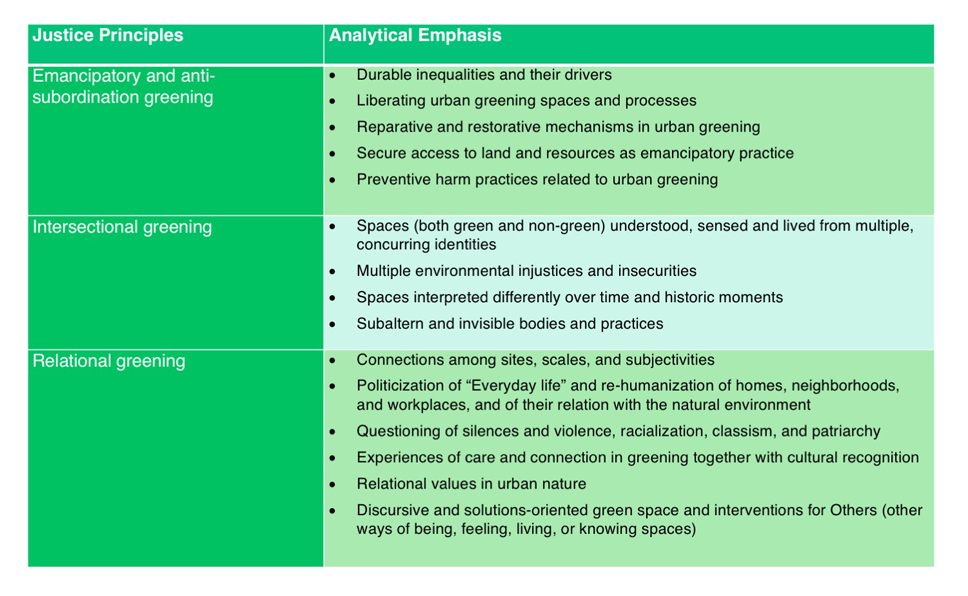Isabelle Anguelovski – Universitat Autònoma de Barcelona (UAB)
It is increasingly orthodox practice for cities to deploy urban greening interventions to address diverse socio-environmental challenges, from protecting urban ecosystems to enhancing built environments and climate resilience or improving health outcomes. In a recent article, myself and colleagues have proposed to expand the theoretical boundaries used to challenge this growing orthodoxy by laying out a nuanced framework that advances critical urban environmental justice scholarship. Beginning from the now well-supported assumption that urban greening is a deeply political project often framed by technocratic principles and promotional claims that this project will result in more just and prosperous cities, our work identifies existing contributions and limits when examining urban green inequities through the traditional lenses of distributional, recognition, and procedural justice. We also lay out a different framework for analyzing justice in urban greening. Here, our argument highlights the need to uncover how persistent domination and subordination prevents green interventions from becoming an emancipatory anti-subordination, intersectional, and relational project that consider the needs, identities, and everyday lives of marginalized groups. We also illustrate our framework’s usefulness by applying it to the analysis of urban residents’ (lack of) access to urban greening and by applying it to two different planning and policy domains: (a) greening for wellbeing, care, and health and (b) greening for recreation and play. This final analysis serves to provide critical questions and strategies that can hopefully guide new urban green planning and practice approaches.
